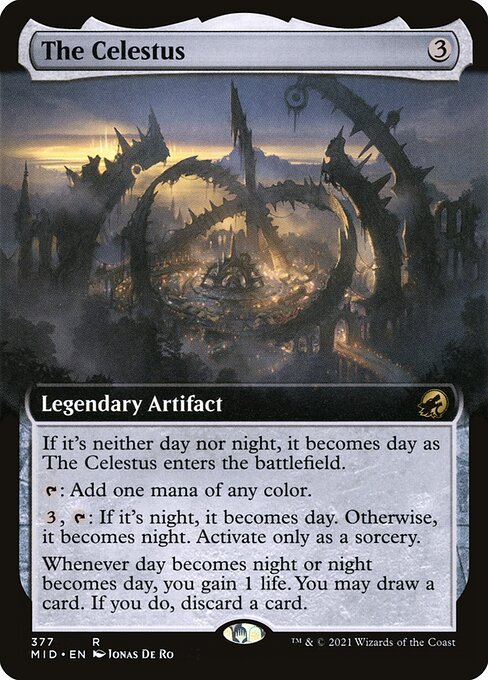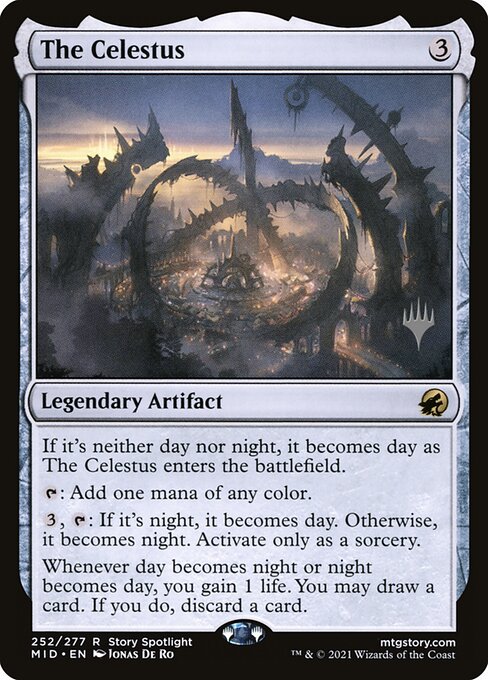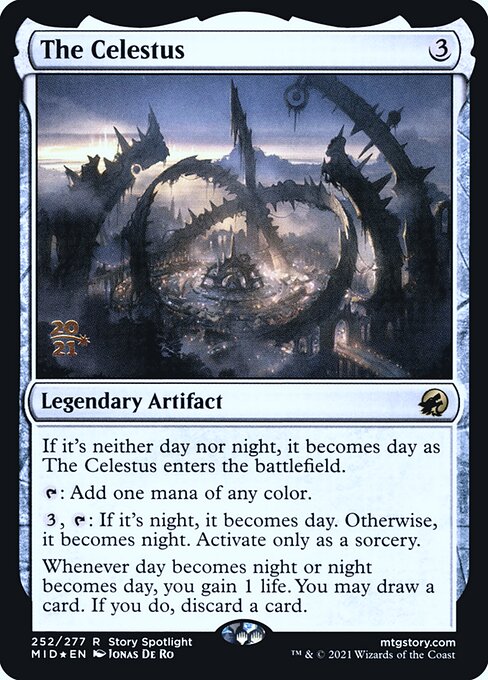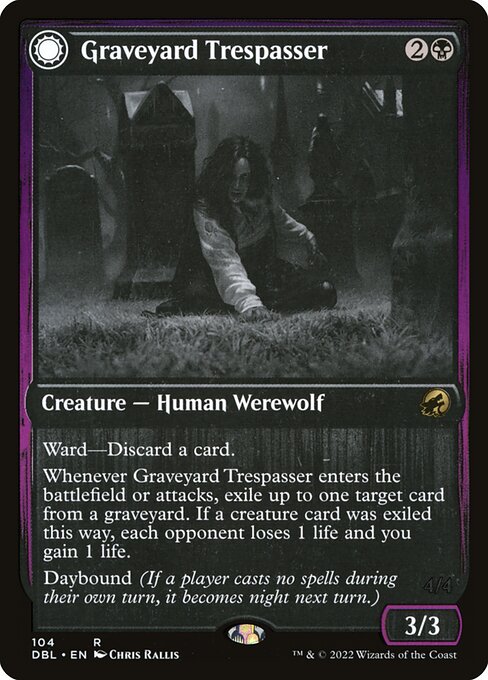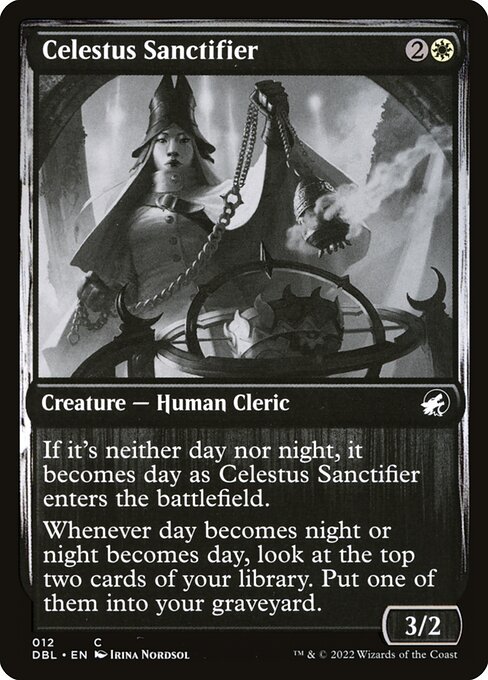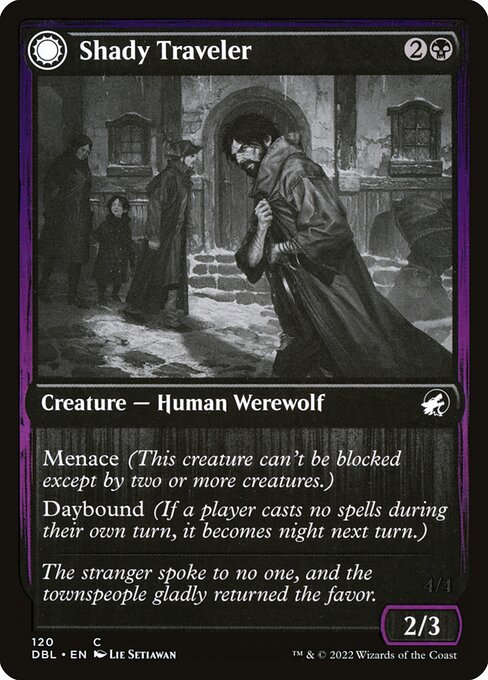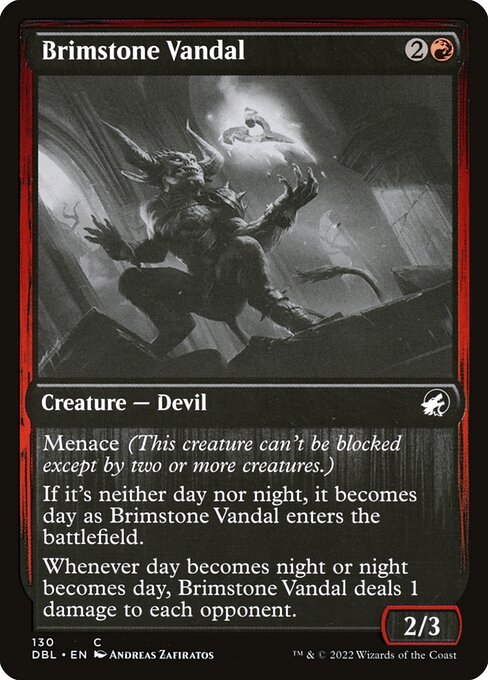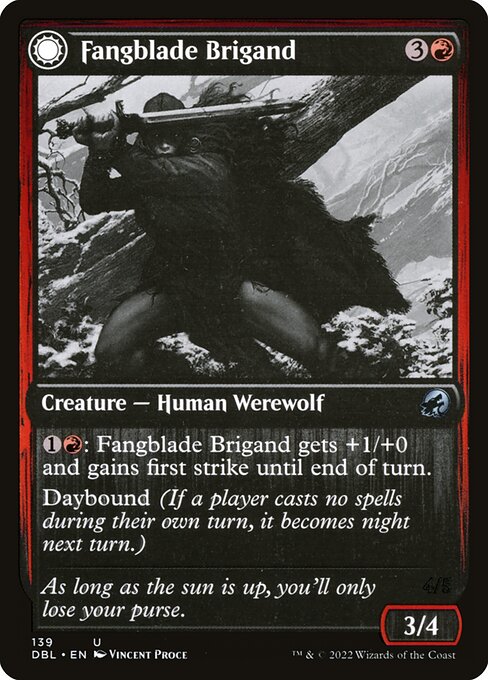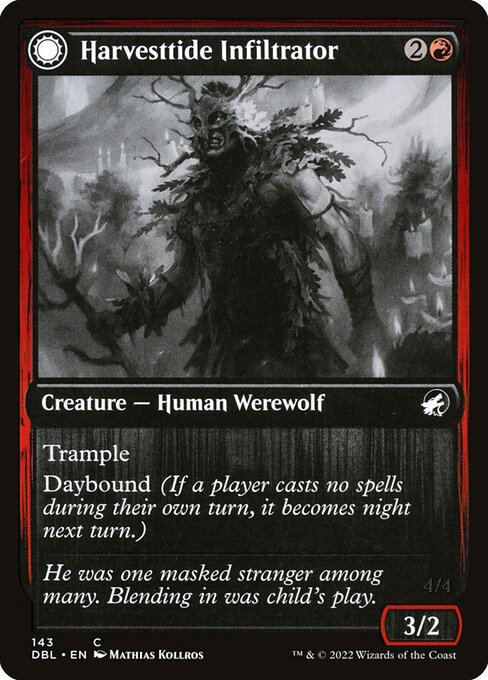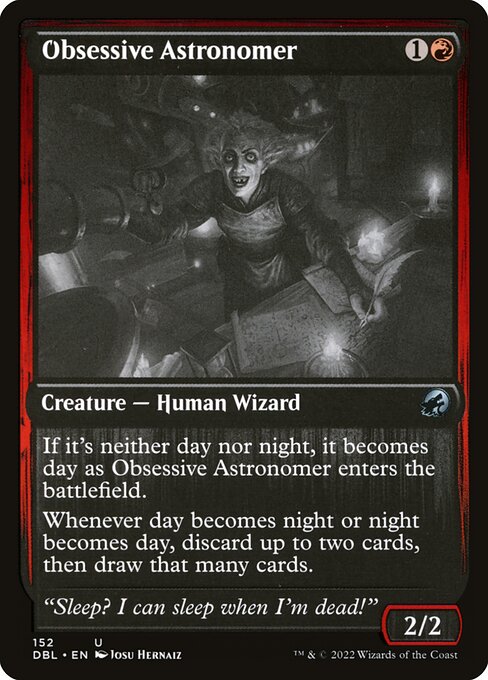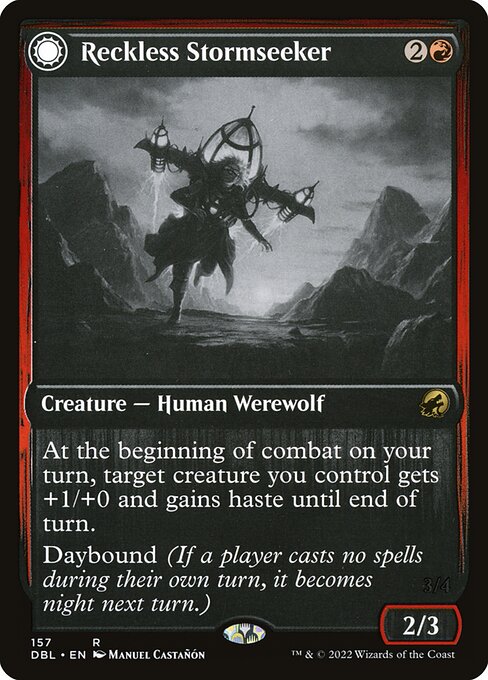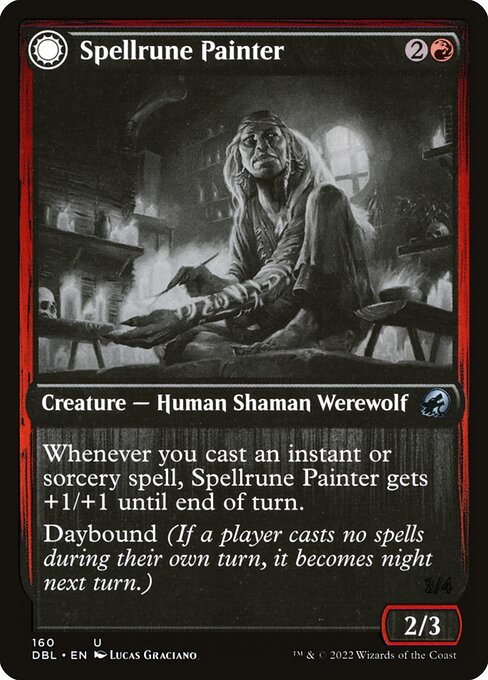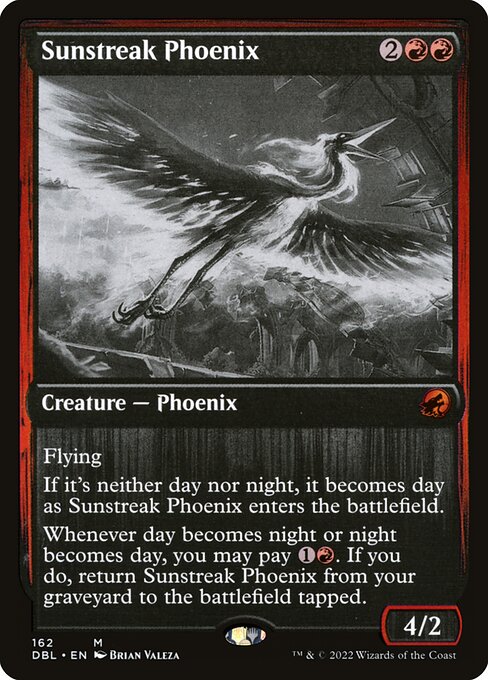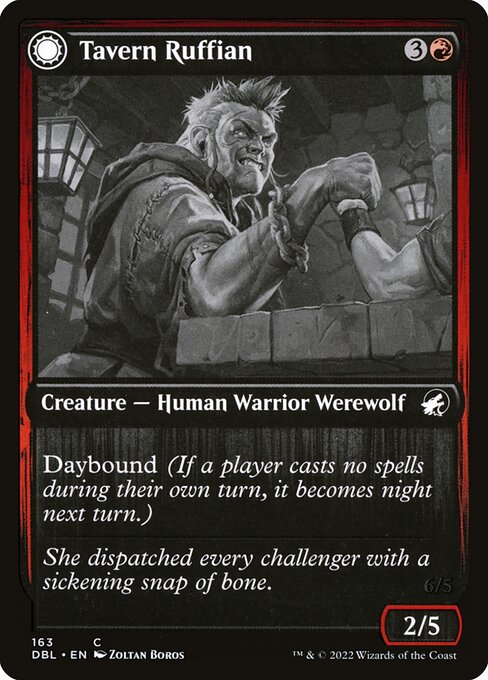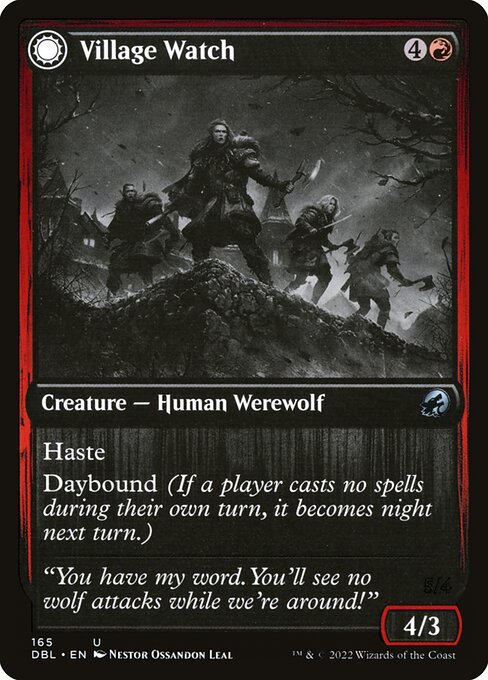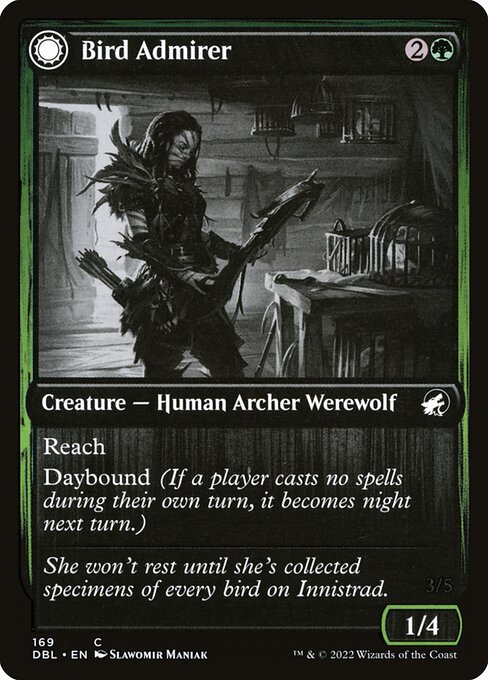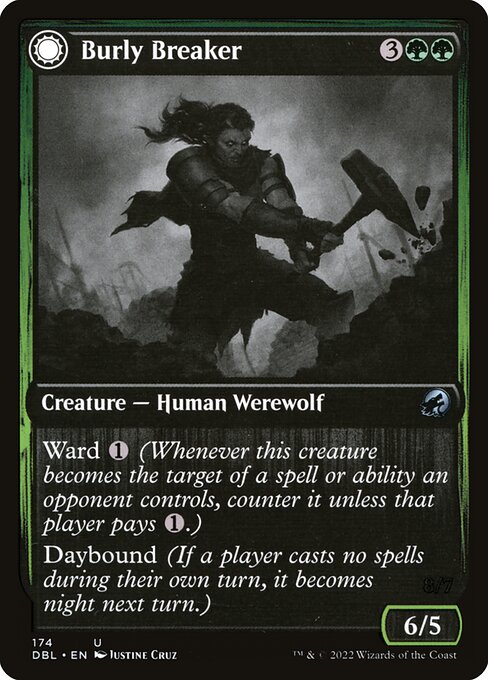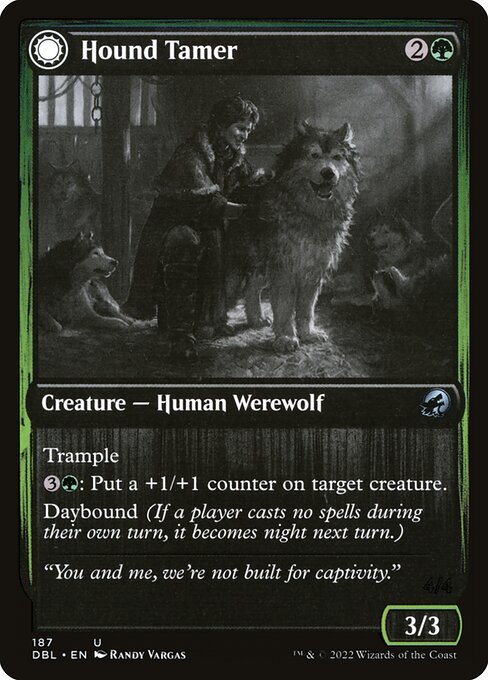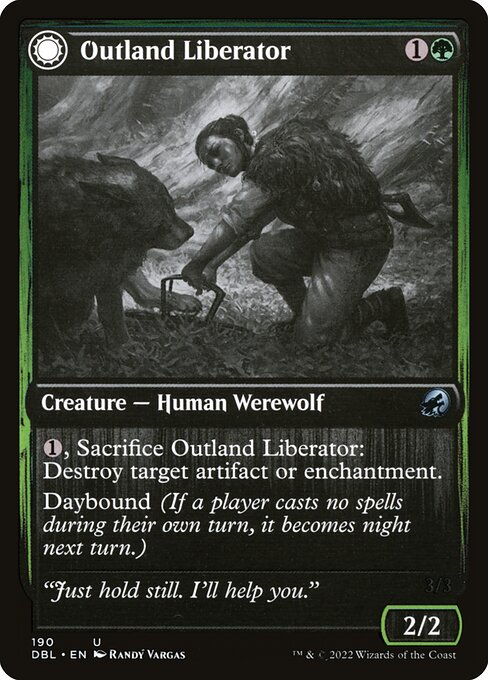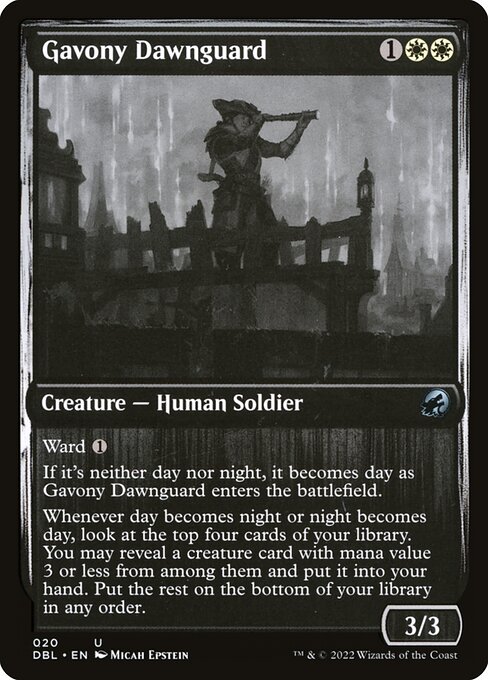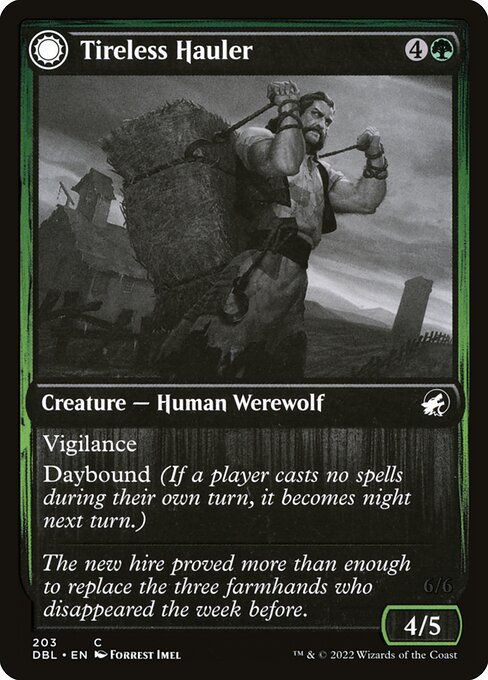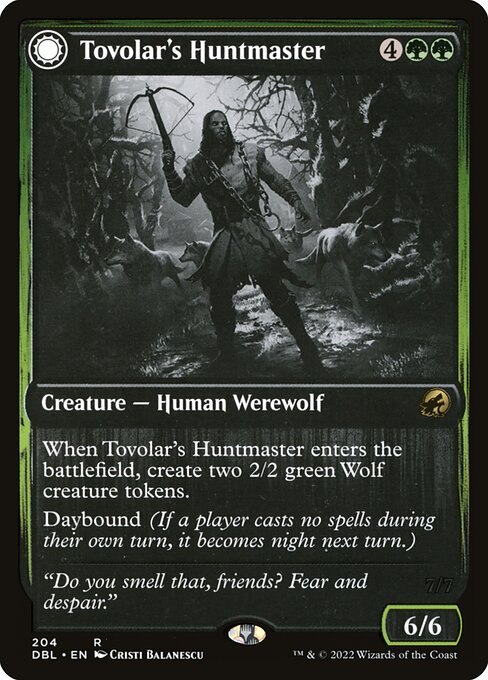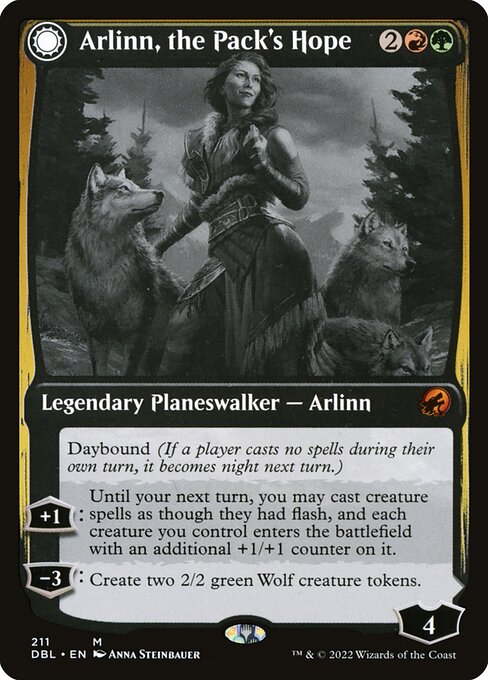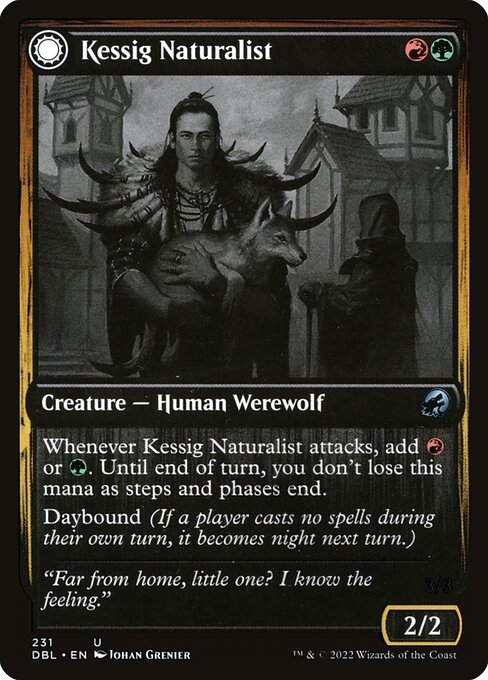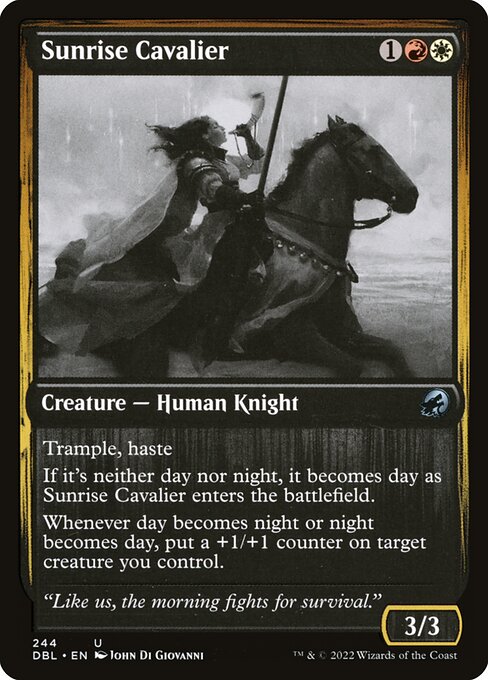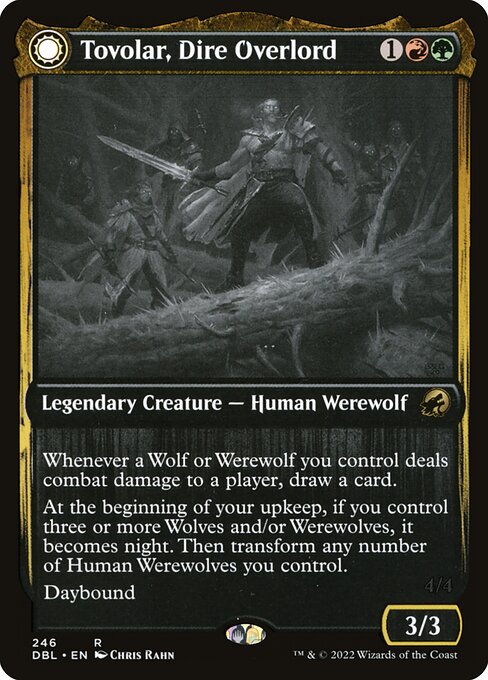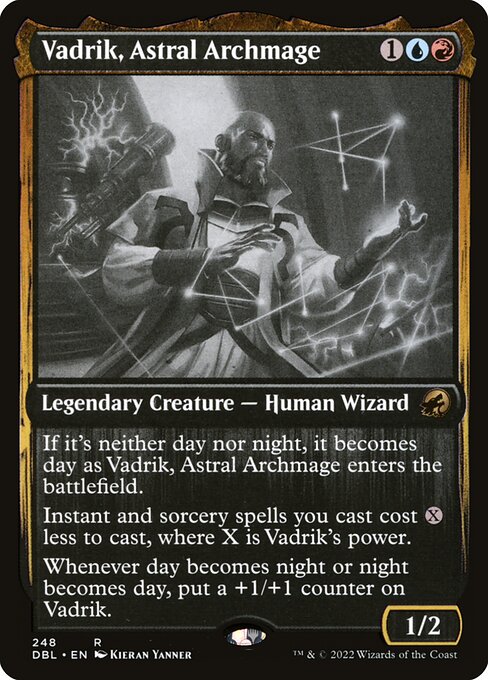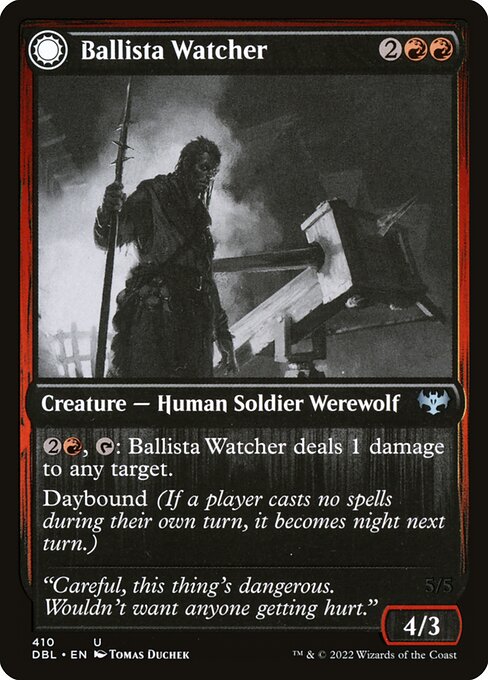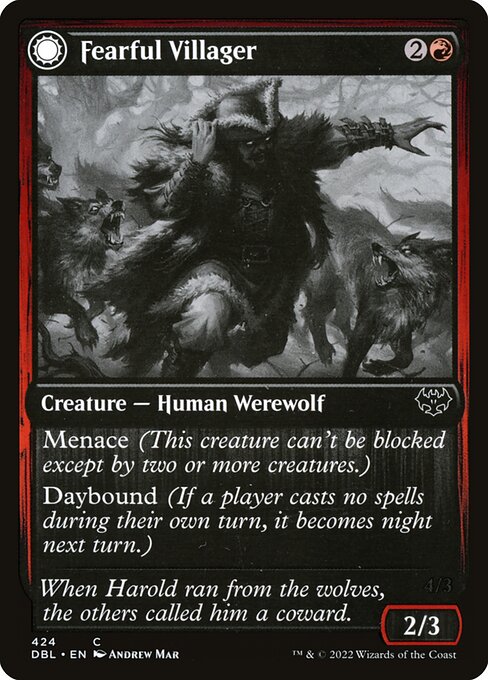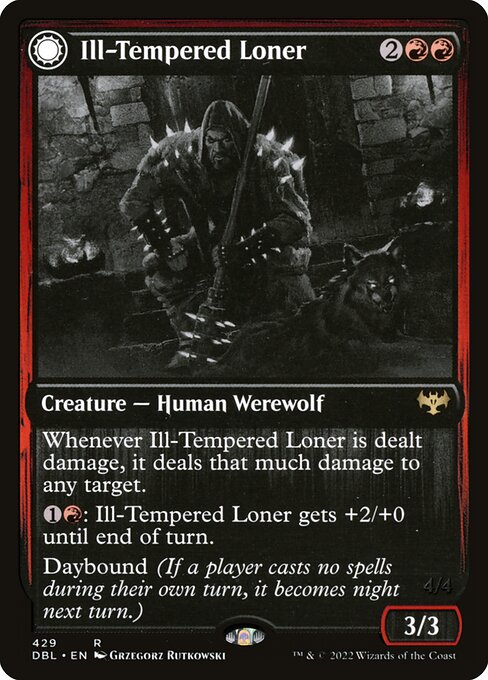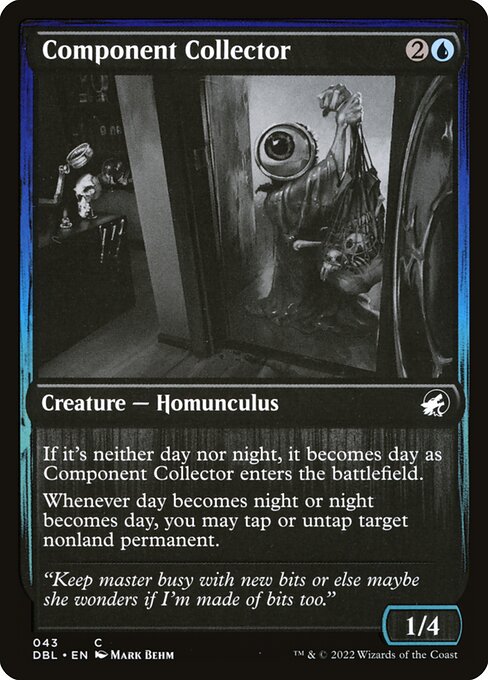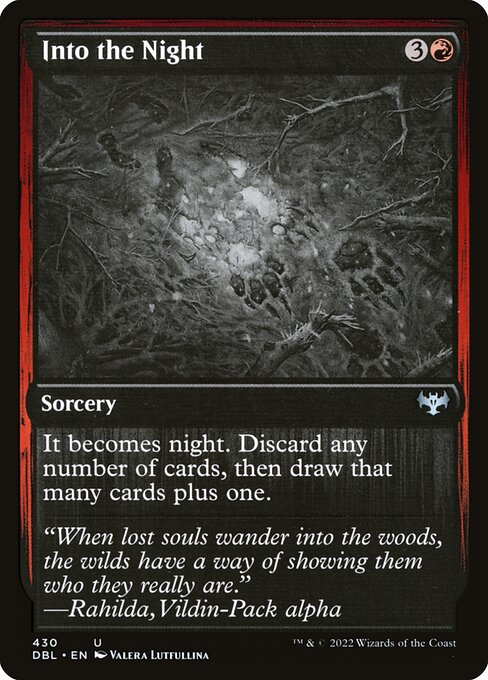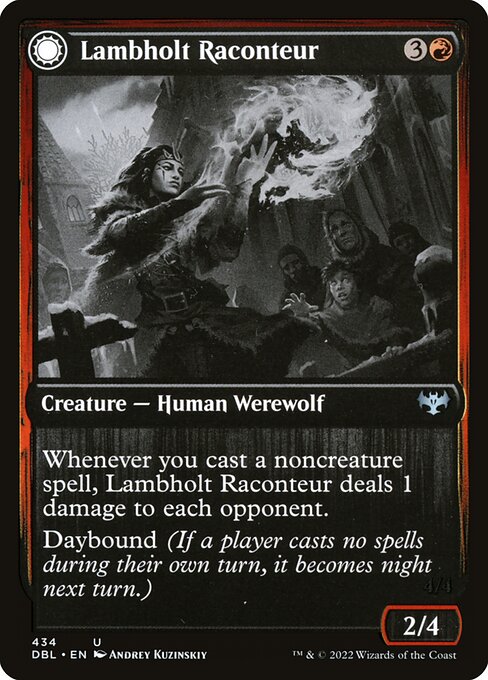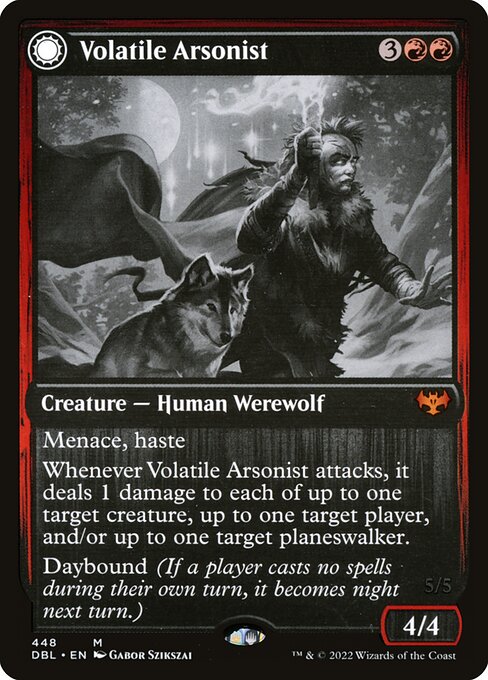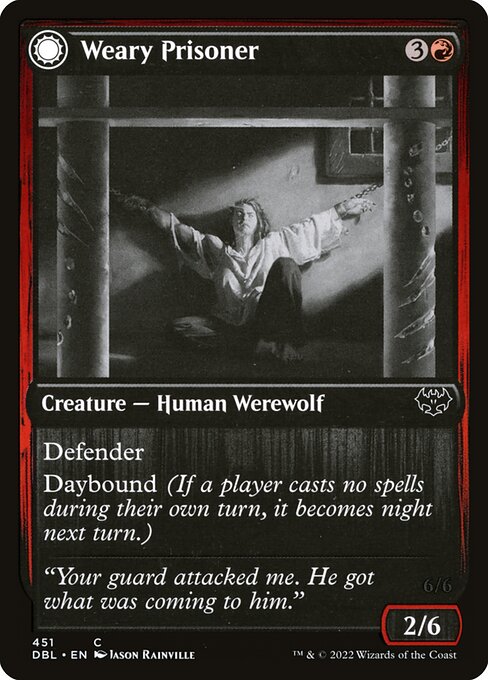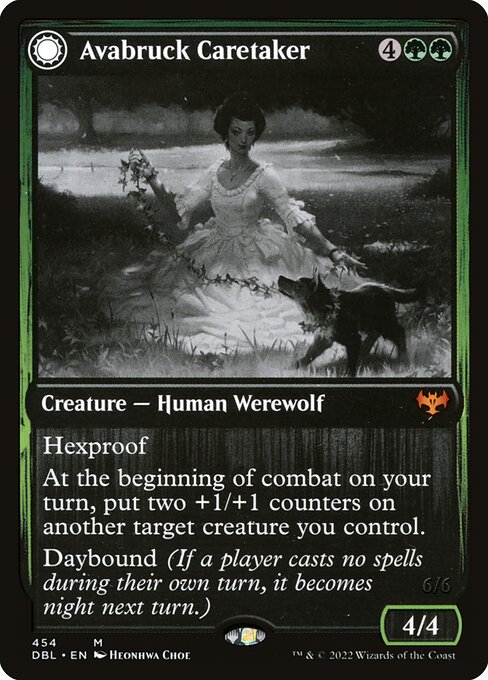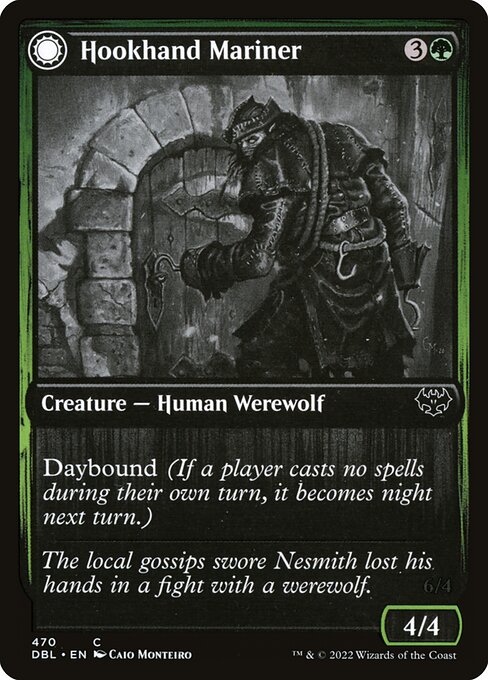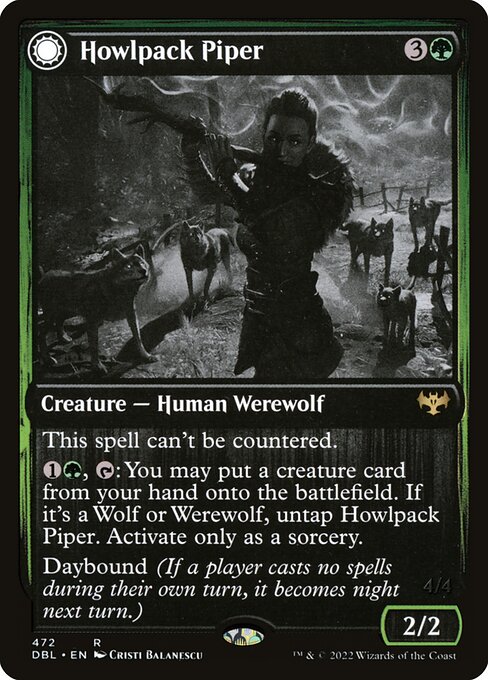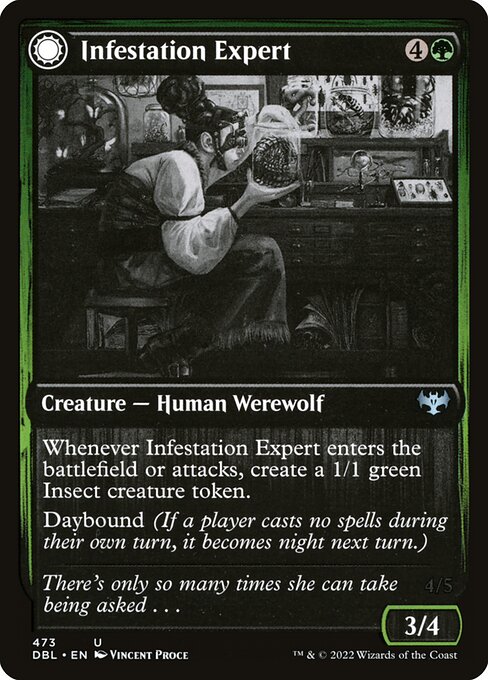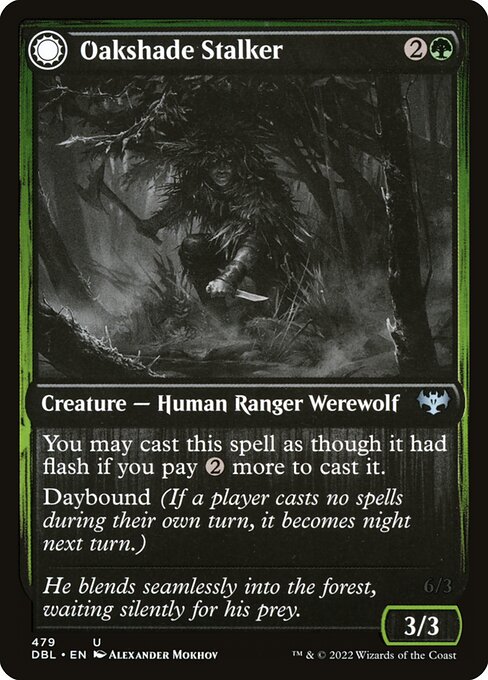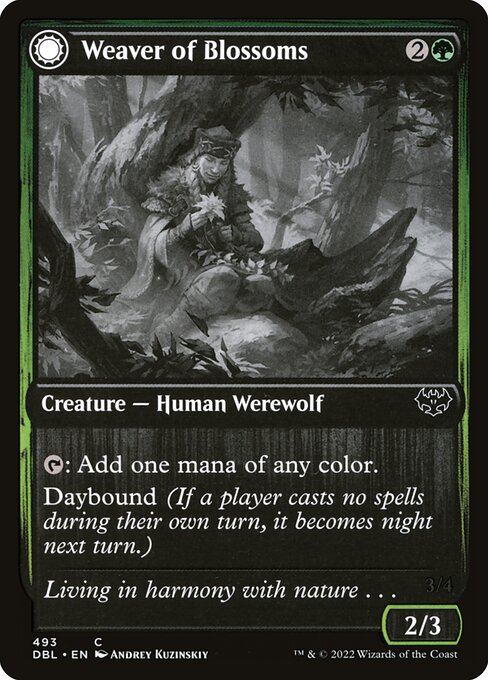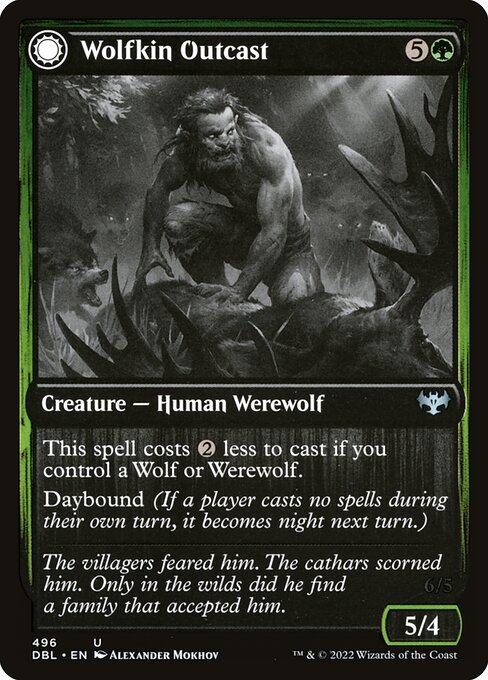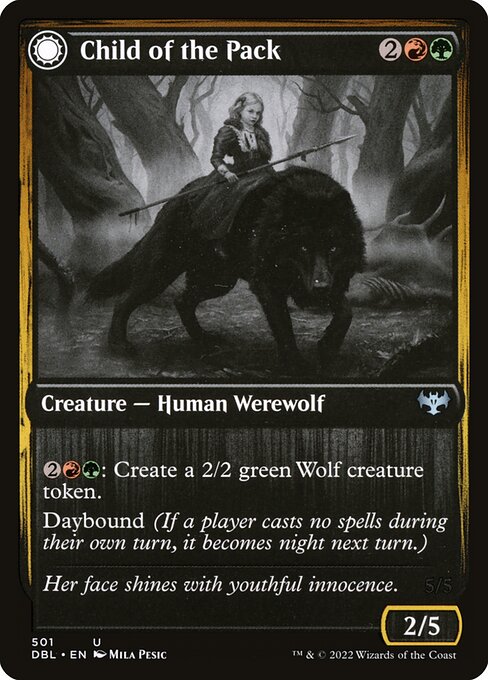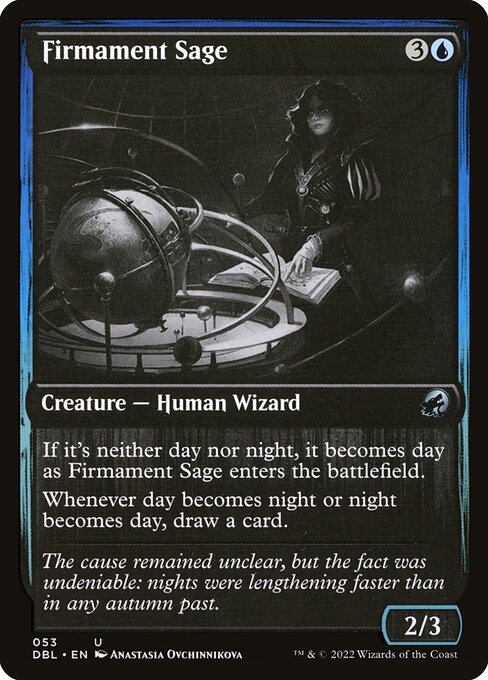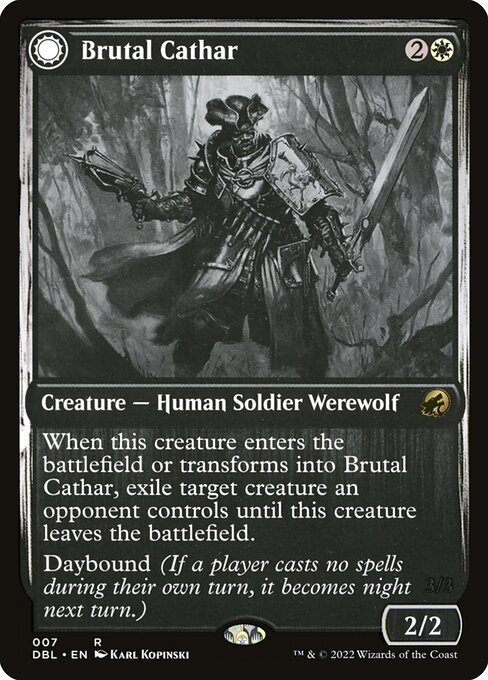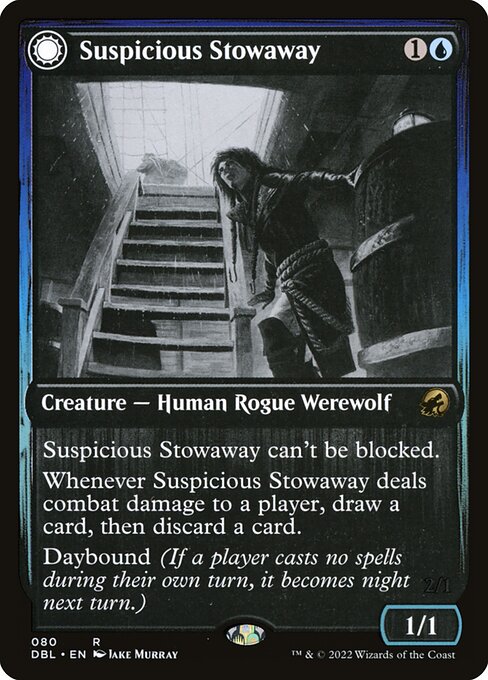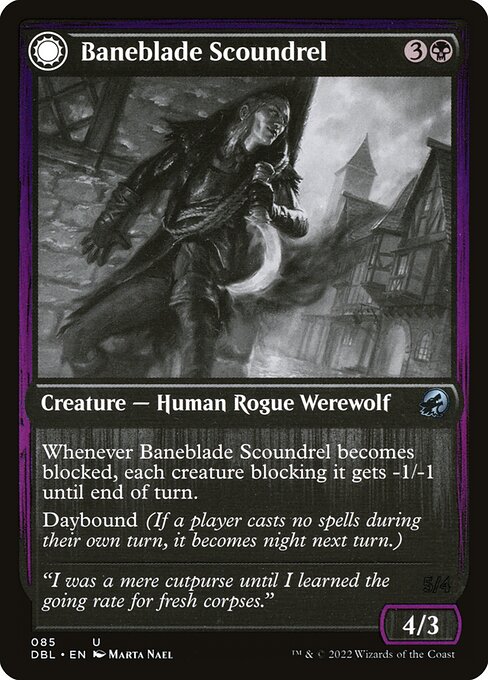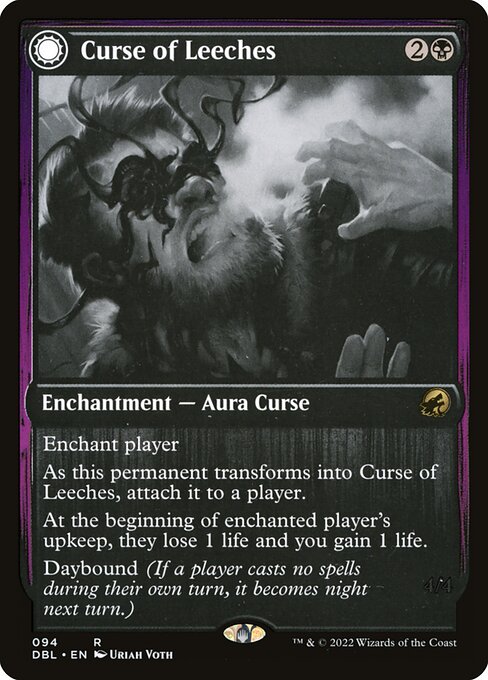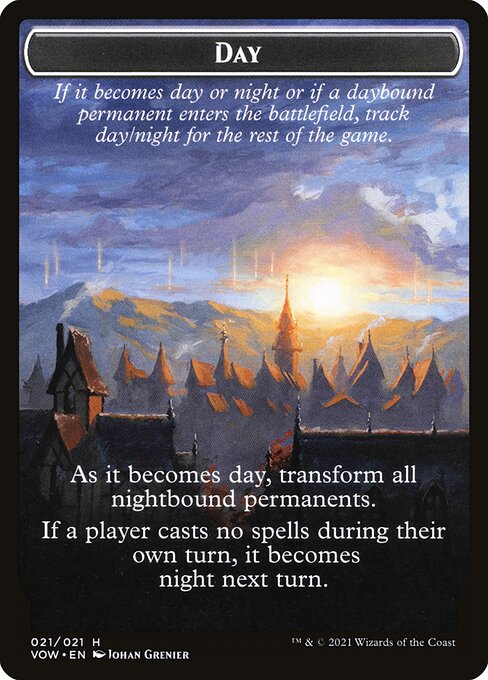standard
future
historic
gladiator
pioneer
explorer
modern
legacy
pauper
vintage
penny
commander
brawl
alchemy
paupercommander
duel
oldschool
premodern
Rulings
Before a player untaps their permanents during the untap step, the game checks to see if the day/night designation should change.
If a triggered ability triggers whenever day becomes night or night becomes day, it only triggers if it was already either day/night and becomes the other. It does not trigger when the game becomes day or night for the first time.
If you choose to draw a card with The Celestus but some effect replaces that card draw with something else, you will still have to discard a card.
If it is day, and the active player of the previous turn cast no spells during their turn, it becomes night.
If it is night, and the active player of the previous turn cast two or more spells during their turn, it becomes day.
Day and night are designations that the game itself can have. The game starts as neither. Once the game becomes day (or less commonly, night), the game will be exactly one of them—day or night—going back and forth for the rest of the game.
For more information about Day and Night and the Daybound and Nightbound abilities, please see the Innistrad: Midnight Hunt Mechanics atricle (https://magic.wizards.com/en/articles/archive/feature/innistrad-midnight-hunt-mechanics-2021-09-02).
If a triggered ability triggers whenever day becomes night or night becomes day, it only triggers if it was already either day/night and becomes the other. It does not trigger when the game becomes day or night for the first time.
If you choose to draw a card with The Celestus but some effect replaces that card draw with something else, you will still have to discard a card.
If it is day, and the active player of the previous turn cast no spells during their turn, it becomes night.
If it is night, and the active player of the previous turn cast two or more spells during their turn, it becomes day.
Day and night are designations that the game itself can have. The game starts as neither. Once the game becomes day (or less commonly, night), the game will be exactly one of them—day or night—going back and forth for the rest of the game.
For more information about Day and Night and the Daybound and Nightbound abilities, please see the Innistrad: Midnight Hunt Mechanics atricle (https://magic.wizards.com/en/articles/archive/feature/innistrad-midnight-hunt-mechanics-2021-09-02).
Rulings
Before a player untaps their permanents during the untap step, the game checks to see if the day/night designation should change.
If a triggered ability triggers whenever day becomes night or night becomes day, it only triggers if it was already either day/night and becomes the other. It does not trigger when the game becomes day or night for the first time.
If you choose to draw a card with The Celestus but some effect replaces that card draw with something else, you will still have to discard a card.
If it is day, and the active player of the previous turn cast no spells during their turn, it becomes night.
If it is night, and the active player of the previous turn cast two or more spells during their turn, it becomes day.
Day and night are designations that the game itself can have. The game starts as neither. Once the game becomes day (or less commonly, night), the game will be exactly one of them—day or night—going back and forth for the rest of the game.
For more information about Day and Night and the Daybound and Nightbound abilities, please see the Innistrad: Midnight Hunt Mechanics atricle (https://magic.wizards.com/en/articles/archive/feature/innistrad-midnight-hunt-mechanics-2021-09-02).
If a triggered ability triggers whenever day becomes night or night becomes day, it only triggers if it was already either day/night and becomes the other. It does not trigger when the game becomes day or night for the first time.
If you choose to draw a card with The Celestus but some effect replaces that card draw with something else, you will still have to discard a card.
If it is day, and the active player of the previous turn cast no spells during their turn, it becomes night.
If it is night, and the active player of the previous turn cast two or more spells during their turn, it becomes day.
Day and night are designations that the game itself can have. The game starts as neither. Once the game becomes day (or less commonly, night), the game will be exactly one of them—day or night—going back and forth for the rest of the game.
For more information about Day and Night and the Daybound and Nightbound abilities, please see the Innistrad: Midnight Hunt Mechanics atricle (https://magic.wizards.com/en/articles/archive/feature/innistrad-midnight-hunt-mechanics-2021-09-02).
Your collection? Your decks?
Want to manage your collection and/or create decks?
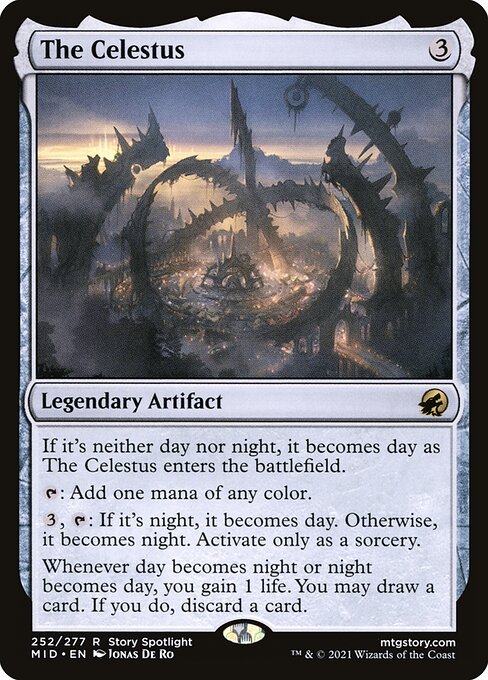

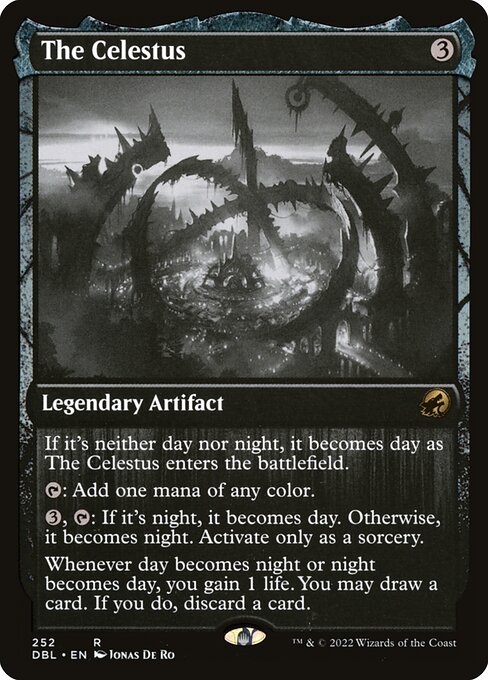
 0
0
 1.44€
1.44€
